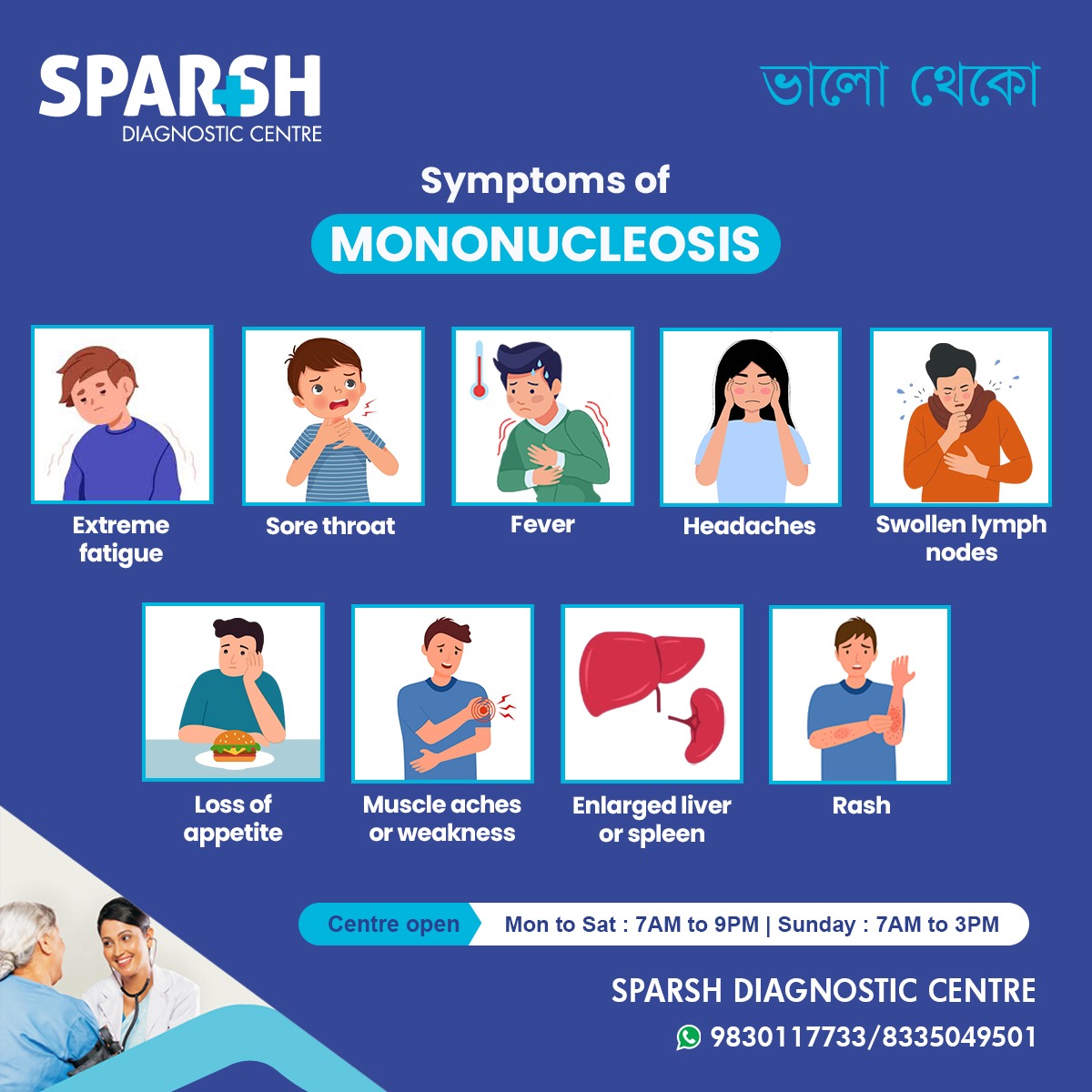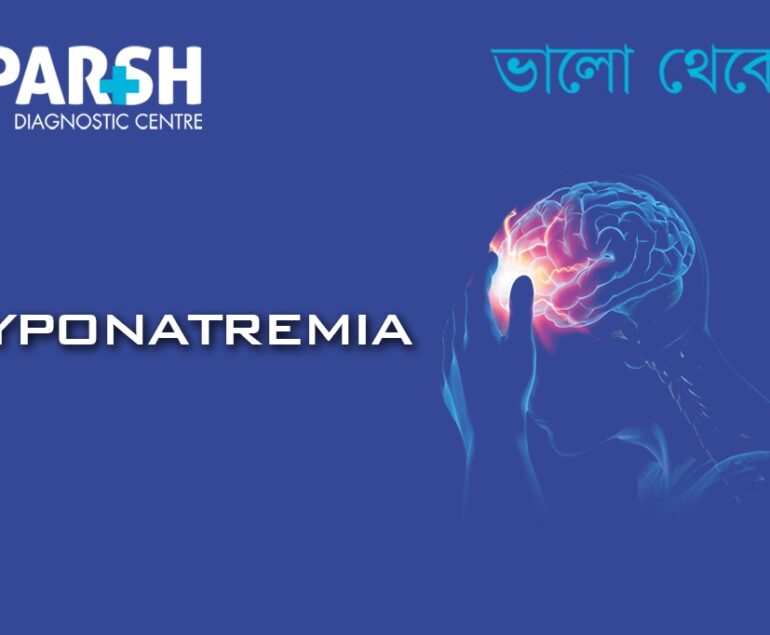Mononucleosis, often referred to as “Mono” or the “kissing disease,” is a viral infection most commonly caused by the Epstein-Barr virus (EBV). It is primarily known for causing extreme fatigue, sore throat, fever, and swollen lymph nodes, and it mainly affects teenagers and young adults. However, people of all ages can get infected.
This article will delve deep into the causes, symptoms, complications, diagnosis, treatment, and preventive measures associated with Mononucleosis. If you’re feeling chronically tired, experiencing swollen glands, or dealing with a persistent sore throat, this guide is for you.
What Is Mononucleosis?
Mononucleosis is a contagious viral illness that impacts the immune system. The Epstein-Barr virus (EBV), part of the herpes virus family, is the primary culprit. Once infected, the virus remains dormant in the body for life and may reactivate without causing symptoms.
Although EBV is the most common cause, other viruses like cytomegalovirus (CMV) can also lead to a similar mono-like illness.
How Is Mononucleosis Transmitted?
The most common mode of transmission is through saliva, which is why it is nicknamed the “kissing disease.” However, it can also spread through:
Sharing utensils, drinks, or toothbrushes
Exposure to coughs or sneezes
Blood and semen during sexual contact
Organ transplants or blood transfusions (rare)
It is worth noting that Mononucleosis is not as contagious as a cold or the flu.
Who Is at Risk?
Anyone can contract Mono, but certain groups are more vulnerable:
Teenagers and young adults (ages 15–24)
People with weakened immune systems
Those in close-contact environments like schools, hostels, or sports teams
Symptoms of Mononucleosis
Symptoms usually develop four to six weeks after exposure to the virus. Some individuals may experience mild symptoms, while others suffer from more intense manifestations. The symptoms can last from two to six weeks or even longer in some cases.
1. Extreme Fatigue
One of the most defining and long-lasting symptoms. Patients may feel chronically tired, regardless of rest.
2. Sore Throat
Often severe and mistaken for strep throat, sometimes with white patches on the tonsils.
3. Fever
Low to moderate-grade fever that can spike during the initial days.
4. Headaches
Persistent, dull headaches due to the viral infection and associated inflammation.
5. Swollen Lymph Nodes
Especially in the neck and armpits. Lymph nodes become tender and enlarged.
6. Loss of Appetite
Many individuals lose interest in food and experience unintentional weight loss.
7. Muscle Aches or Weakness
Body soreness, particularly in the arms, legs, and back.
8. Enlarged Liver or Spleen
Hepatosplenomegaly may develop. A ruptured spleen is a rare but serious complication.
9. Skin Rash
Pinkish, flat, or raised spots, especially if the patient is given ampicillin or amoxicillin.

Complications of Mononucleosis
Most people recover without long-term issues. However, complications can occur, particularly in those with compromised immune systems.
1. Ruptured Spleen
A medical emergency; it can cause sudden sharp pain in the left upper abdomen.
2. Liver Inflammation (Hepatitis) or Jaundice
Symptoms include yellowing of the skin/eyes and dark-colored urine.
3. Secondary Infections
Such as strep throat, sinus infections, or tonsillitis.
4. Neurological Issues
In rare cases, it can lead to Guillain-Barré syndrome, meningitis, or encephalitis.
5. Breathing Issues
Swollen tonsils may obstruct the airways, especially in children.
Diagnosis of Mononucleosis
A healthcare provider will typically evaluate symptoms and conduct physical exams. Diagnosis can be confirmed through:
1. Blood Tests
Monospot Test: Detects heterophile antibodies specific to EBV.
EBV Antibody Test: Helps distinguish between current and past infections.
2. Complete Blood Count (CBC)
Shows elevated white blood cell count and atypical lymphocytes.
3. Liver Function Tests
Used to evaluate any liver involvement.
4. Ultrasound
May be used to assess spleen enlargement, especially in patients with abdominal pain.
Treatment of Mononucleosis
There is no specific antiviral treatment for EBV. The treatment primarily focuses on symptomatic relief and preventing complications.
1. Rest
Adequate rest is essential. Fatigue may persist for several weeks even after other symptoms resolve.
2. Hydration
Drink plenty of fluids to combat fever and sore throat.
3. Pain and Fever Management
Over-the-counter medications such as:
Paracetamol
Ibuprofen
Note: Avoid aspirin in children and teens due to the risk of Reye’s syndrome.
4. Saltwater Gargle
Relieves sore throat and helps in oral hygiene.
5. Avoid Strenuous Activity
Since the spleen may be enlarged, contact sports or heavy lifting should be avoided for at least a month.
6. Corticosteroids
May be prescribed in cases of severe tonsillar swelling or airway obstruction.
Recovery Timeline
Most people start to feel better in 2 to 4 weeks, but some symptoms like fatigue can linger for up to 2–3 months. It’s important to resume normal activity gradually.
How to Prevent Mononucleosis
Since EBV is highly prevalent, complete prevention isn’t always possible, but you can reduce the risk through:
Avoiding kissing or sharing utensils with infected individuals
Hand hygiene, especially after sneezing or coughing
Avoiding crowded or high-contact settings when symptomatic
Strengthening your immune system with good sleep, nutrition, and regular exercise
Mononucleosis in Children
Children often show milder symptoms or may even be asymptomatic. In most cases, it’s misdiagnosed as a common cold. Still, parents should monitor for persistent fatigue, fever, or swollen glands.
When to See a Doctor
Seek medical attention if:
Symptoms persist beyond two weeks
You experience sharp abdominal pain (ruptured spleen)
You have trouble breathing or swallowing
High fever continues despite medication
Yellowing of the skin or eyes appears
Long-Term Outlook
While Mononucleosis can be debilitating, most people recover completely without recurring episodes. However, the EBV virus remains in the body in a dormant state. In very rare cases, it may contribute to conditions like:
Certain types of lymphoma
These associations are still being studied and do not occur in the majority of people.
FAQs About Mononucleosis
Is Mononucleosis contagious?
Yes, but not as highly contagious as flu or the common cold. It spreads mainly through saliva.
Can you get Mono twice?
It’s rare but possible. Once infected, you carry the virus for life, and it can reactivate.
How long should I avoid sports if I have Mono?
At least 3 to 4 weeks, especially if the spleen is enlarged.
Can antibiotics treat Mono?
No. Since it’s viral, antibiotics are ineffective and can sometimes cause rashes if misused.
Mononucleosis is a common viral illness with symptoms that can temporarily impact daily life. While the fatigue and discomfort can be frustrating, most individuals recover with rest, hydration, and supportive care. Recognizing the signs early—such as extreme fatigue, sore throat, fever, and swollen lymph nodes—can help guide timely diagnosis and management.
If you’re experiencing persistent symptoms or are concerned about your health, consult a healthcare provider for proper diagnosis and care.
Need a Mononucleosis Test?
Visit Sparsh Diagnostic Centre for expert evaluation, reliable lab testing, and compassionate care.
📞 Call: 9830117733 / 8335049501
📍Open Mon–Sat: 7 AM – 9 PM | Sunday: 7 AM – 3 PM
#BhaloTheko
Disclaimer:
No content on this site, regardless of date, should ever be used as a substitute for direct medical advice from your doctor or other qualified clinician.

![]()






[…] people may not recognize its name, EBV is behind a range of health conditions, including infectious mononucleosis and certain types of cancers. With over 90% of adults globally carrying the virus by the time they […]
[…] infections: e.g., Epstein-Barr virus (mononucleosis), cytomegalovirus (CMV), […]
[…] Some viral infections, such as Epstein-Barr virus (which causes mononucleosis), have been linked to a higher risk of developing MS. It is believed that these infections may […]
[…] The most common cause of a sore throat is a viral infection, such as the common cold, flu, or mononucleosis. Viral sore throats usually resolve on their own within a […]
[…] Viruses: Other viral infections, such as Epstein-Barr virus (which causes mononucleosis), cytomegalovirus, and even the flu, have been linked to Bell’s palsy. These viruses may […]